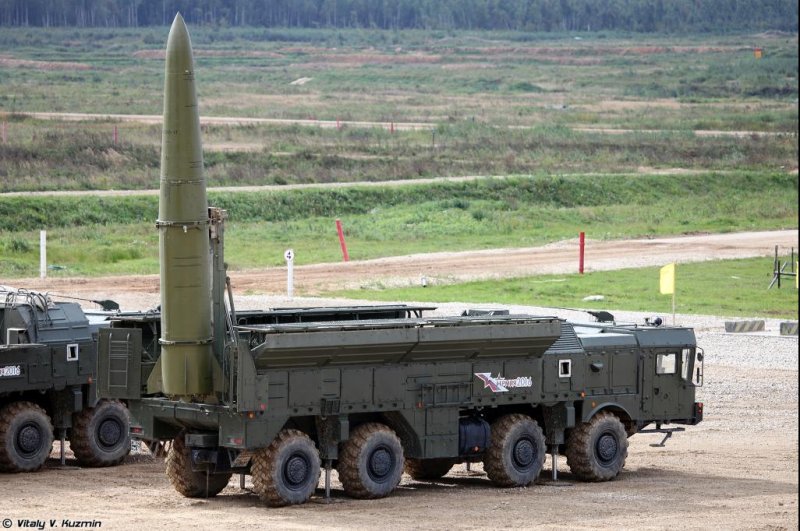Iskander missile which NATO says is in violation of the INF treaty in Europe due to it's nuclear capabilities. Photo courtesy of Vitaly V. Kuzmin
Dec. 5 (UPI) -- NATO has decided to start planning for a post-Intermediate-Range Nuclear Forces Treaty world after the organization agreed Russia was in violation of the agreement earlier this week, Secretary-General Jens Stoltenberg said.
The statement followed a Tuesday meeting of foreign ministers at NATO headquarters in Brussels, including U.S. Secretary of State Mike Pompeo.
"All allies have concluded that Russia has developed and fielded a new ground-launched cruise missile system -- the SSC-8, also known as the 9M729," Stoltenberg said.
"Allies agree that this missile system violates the INF Treaty and poses significant risks to Euro-Atlantic security."
The treaty dates back to a Cold War-era agreement signed by President Ronald Reagan and Soviet Union leader Mikhail Gorbachev in 1987. It called for the elimination of nuclear-capable ballistic missiles in the medium range on European soil.
"This is really serious, because, of course, all missiles are dangerous, but these missiles are in
particular dangerous because they are hard to detect, they are mobile, they are nuclear-capable," Stoltenberg said.
"And they also reduce the threshold for nuclear weapons in the event of a conflict," he said. "That's the reason why the INF Treaty has been so important, and that is why it is so serious that this treaty risks breaking down because of the Russian violations.
"The U.S. has raised the matter formally with Russia at senior levels more than 30 times," Stoltenberg added. "Other allies have raised it with Russia, too. We did so, a few weeks ago, in the NATO-Russia Council here in Brussels."
The United States fully complies with the INF Treaty, Stoltenberg said. "There are no new U.S. missiles in Europe, but there are new Russian missiles in Europe,"
Pompeo said Tuesday that the United States would no longer participate in the treaty if Russia does not comply with it within 60 days.
"It makes no sense for the United States to remain in a treaty that constrains our ability to respond to Russia's violations," Pompeo said after the meeting. "We hope that they'll change course, but there's been absolutely no indication that they'll do so."















